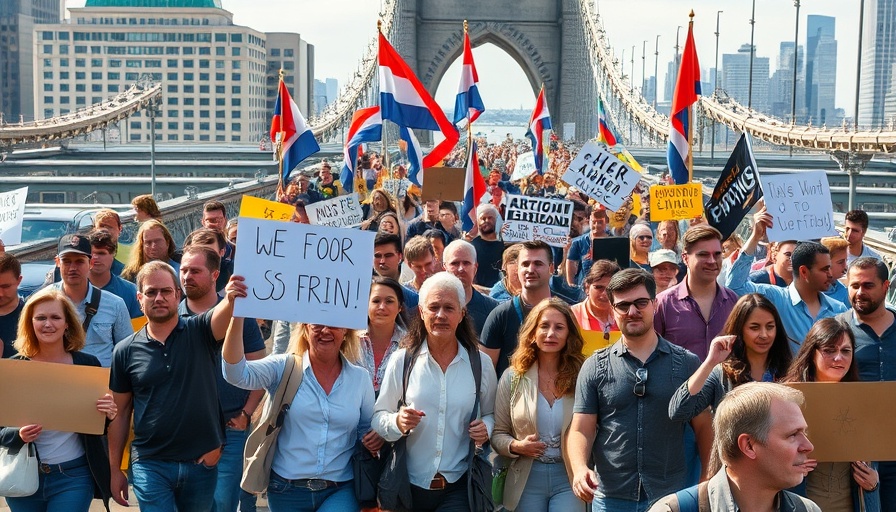
The ACLU's Bold Move Against ICE in Southern California
In a significant legal action, the American Civil Liberties Union (ACLU) has filed a lawsuit aiming to block the U.S. Immigration and Customs Enforcement (ICE) from proceeding with its planned raids in Southern California. This action alleges widespread constitutional violations amidst claims that ICE is consciously targeting individuals based on race.
The ACLU specifically points to practices that they describe as targeting people with "brown skin," arguing that these practices perpetuate discrimination and violate the fundamental rights guaranteed by the Constitution. Furthermore, there are alarming accusations that detainees are being held in conditions that mirror those of dungeons, raising serious humanitarian concerns about the ethical implications of ICE's operations.
Understanding the Implications of Targeted Raids
With the backdrop of heightened immigration enforcement, the ACLU's lawsuit shines a light on the contentious policies that have characterized immigration actions in recent years. The targeting of individuals for their perceived ethnicity not only raises serious ethical questions but also informs the ongoing national debate about immigration reform. This case is pivotal in illustrating how immigration policies can disproportionately affect communities of color, often without due process.
A Humanitarian Crisis: Detainee Conditions
The allegations regarding the treatment of detainees being held in "dungeon-like facilities" are not just legal points; they are human rights concerns. Reports from various human rights organizations have highlighted how detention conditions often fail to meet the basic standards of care, including access to adequate food, healthcare, and sanitation. Undoubtedly, there is a growing sentiment among many that the system requires drastic re-evaluation.
Constitutional Violations and Public Discourse
The ACLU contends that the very actions of ICE in Southern California serve as a glaring violation of the Fourth Amendment, which protects citizens from unreasonable searches and seizures. The suit may serve as a touchstone for civil rights, particularly concerning immigrant populations, as it seeks to bring to light the broader implications of governmental overreach.
The Broader Context of Immigration Policy
As America wrestles with its identity and immigration policy, this lawsuit provides a crucial perspective on how such federal operations affect local communities. Observers note that the political climate surrounding immigration has changed significantly over the years, with many advocating for more humane treatment of undocumented individuals. These shifts in public sentiment may significantly influence the outcomes of ongoing legal battles like that of the ACLU against ICE.
Public Reaction and Future Predictions
Response to the ACLU’s lawsuit has been particularly polarized, highlighting the divide in public opinion regarding immigration enforcement. Advocates argue that the ACLU's actions may mark a historical turning point leading to reforms in how ICE conducts operations in the U.S. Others, however, express the fear that such interventions might embolden undocumented individuals and consequently escalate tensions.
Looking ahead, it is essential to consider how this case might influence public policy and immigration rules. Legal experts predict that the ramifications of this lawsuit could resonate beyond California, potentially prompting similar actions across the country. If successful, it could pave the way for significant changes in immigration enforcement protocols and ensure greater accountability for agencies like ICE.
What This Means for Local Communities
For residents in Southern California, particularly those in immigrant communities, the impact of this lawsuit is profound. The ACLU's challenge against ICE not only seeks to protect individuals from unjust treatment but also aims to bolster community trust in law enforcement. It encourages a reevaluation of how immigration laws are implemented, fostering a environment that prioritizes dignity and justice.
As the ACLU’s legal battle unfolds, communities remain watchful. The prospect of significant reforms is a beacon of hope for many advocating for fair treatment of immigrants. The spotlight on ICE practices may very well catalyze broader changes in national immigration discourse, signaling a shift towards more equitable policies.
 Add Element
Add Element  Add Row
Add Row 



 Add Row
Add Row  Add
Add 


Write A Comment